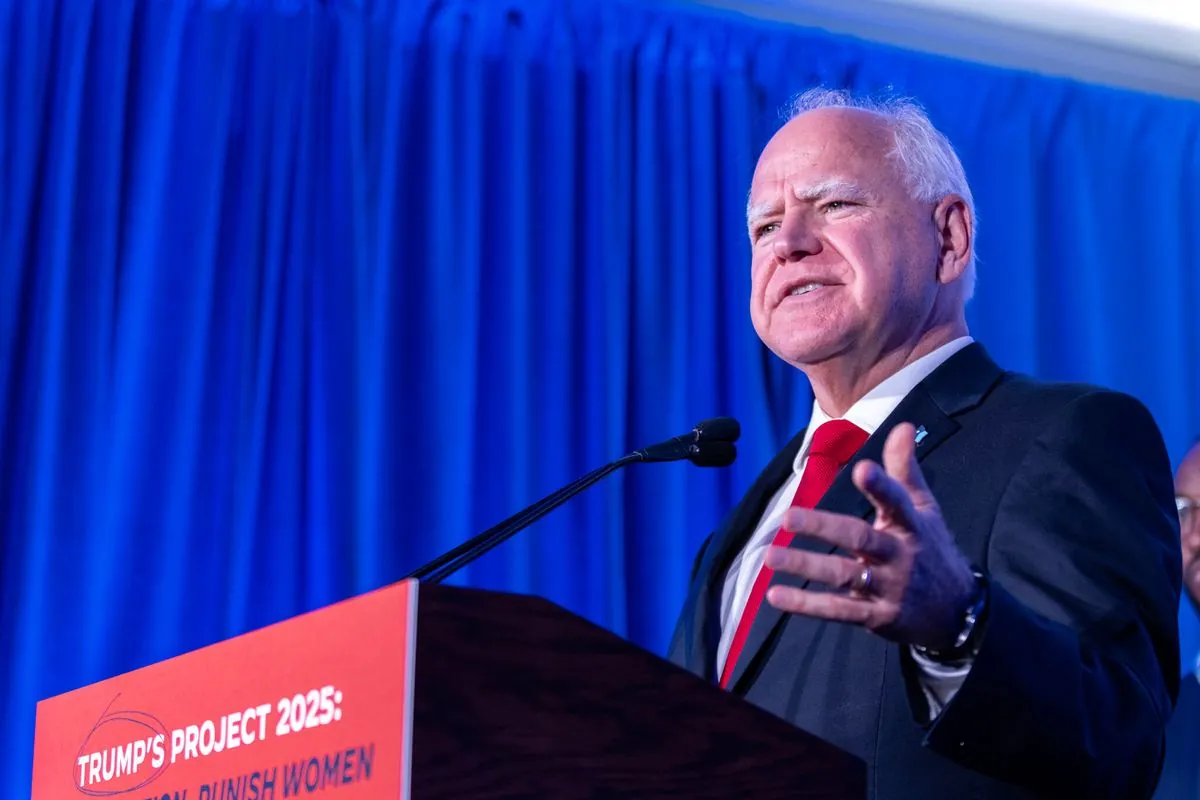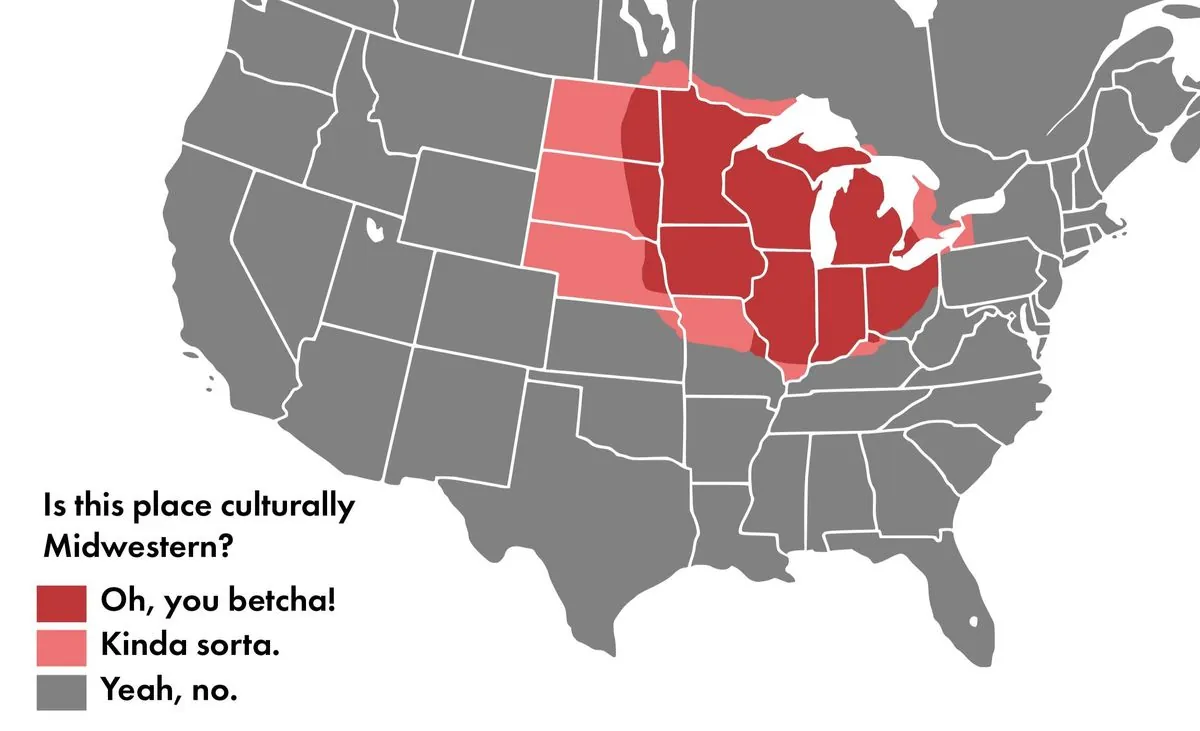Vance vs. Walz: The Battle for Midwestern Authenticity in VP Race
JD Vance and Tim Walz, potential VP picks, spark debate on Midwestern identity. Their backgrounds and public perceptions challenge the concept of "Midwesterness" in American politics.

In a recent event supporting his candidacy as Donald Trump's running mate, Senator JD Vance of Ohio drew a comparison between himself and Minnesota Governor Tim Walz, Vice President Kamala Harris's newly announced running mate. Vance remarked, "We're White guys from the Midwest. I guess there's similarities there."
This statement has sparked a discussion about the concept of "Midwesterness" and its relevance in American politics. The Midwest, often referred to as the "Heartland" of America, has played a crucial role in recent presidential elections, making it a key battleground region.
The Census Bureau defines the Midwest as 12 states stretching from the Dakotas to Kansas and Ohio. However, public perception of what constitutes the Midwest varies. A 2022 YouGov poll revealed that only five states - Illinois, Indiana, Iowa, Kansas, and Nebraska - were considered fully Midwestern by a majority of respondents.

Interestingly, the poll uncovered a partisan divide in perceptions of the Midwest. Republicans tend to view the region as extending further southwest compared to Democrats. This difference in geographical understanding could impact how voters perceive candidates' Midwestern credentials.
Vance's claim to Midwestern identity is somewhat contested. Ohio, his home state, was seen as fully Midwestern by only 40% of poll respondents. Moreover, Vance's background as an author and venture capitalist in Silicon Valley contrasts with the traditional Midwestern image.
On the other hand, Walz, originally from Nebraska, has a more conventional Midwestern background. Before entering politics, he worked as a public school teacher and football coach in Minnesota. His educational background also aligns more closely with the Midwestern ethos, having attended state colleges in Nebraska and Minnesota.
"The vice-presidential nominee isn't that much of a draw for voters."
While the debate over Midwestern authenticity may seem trivial, it reflects broader discussions about regional identity and representation in American politics. The Midwest's diverse economy, encompassing agriculture, manufacturing, and technology sectors, mirrors the complexity of defining "Midwesterness" in today's political landscape.
As the election approaches, it remains to be seen how much weight voters will give to candidates' regional credentials. However, the conversation surrounding Vance and Walz highlights the ongoing importance of regional identity in shaping political narratives and voter perceptions.


































